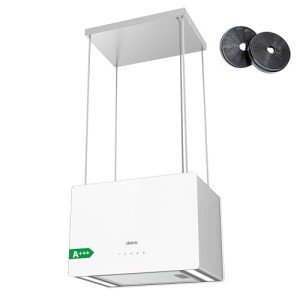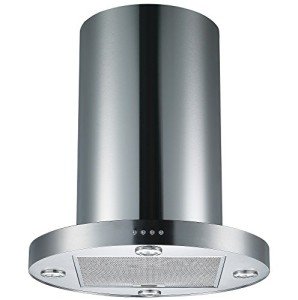Gary Souza
Blog entry by Gary Souza
The Essential Guide to Extractor Fans for Island Hobs
In modern-day cooking areas, the island hob has actually emerged as a standout function, working as a focal point for culinary imagination and social gatherings. Nevertheless, with the arrival of open-plan home, the need for effective ventilation ends up being important. An extractor fan for an island hob extractor hob is not just a luxury; it's a necessity. This post will look into the factors you should consider installing an extractor fan, the types offered, their functions, and the very best practices for installation and maintenance.

Why Install an Extractor Fan for Island Hobs?
cooker hood island hobs are typically located far from walls, making standard overhead extraction hoods impractical. Here are some key reasons an extractor fan is vital for island cooker Hood black hobs:
Air Quality Improvement: Cooking creates smoke, steam, and odors. An extractor fan successfully gets rid of these contaminants, causing a cleaner kitchen atmosphere.
Heat Reduction: Extractor fans assist expel hot air, adding to a more comfortable cooking environment.
Defense Against Grease Build-Up: Continuous exposure to cooking fumes can result in grease accumulation on surfaces. An extractor fan mitigates this danger.
Aesthetic Appeal: Many modern-day extractor fans are developed to complement kitchen aesthetic appeals, ending up being elegant additions instead of eyesores.
Kinds Of Extractor Fans
When selecting an extractor fan for an island hob, it's crucial to think about the various types offered on the marketplace. Here are the most common:
| Type | Description | Pros | Cons |
|---|---|---|---|
| Ducted | These systems vent air outside through a duct. | Highly reliable at eliminating odors and smoke; enhances air quality. | Installation can be complicated; requires a path to exterior. |
| Ductless (Recirculating) | Filters air and recirculates it back into the kitchen. | Easier to set up; no external vent needed. | Less effective in getting rid of smoke and Island Cooker Hood Black odors; needs regular filter changes. |
| Downdraft | Retractable system placed behind the hob. | Discreet design; efficient for island settings. | Relatively pricey; might not be as powerful as conventional hoods. |
| Wall-mounted | Similar to conventional hoods however developed to hang over islands. | Effective and available in different designs. | Needs adequate area; can block views. |
Key Features to Consider
When acquiring an extractor fan for an island hob, there are several features to remember to ensure optimal efficiency and fulfillment:
Suction Power: Measured in cubic meters per hour (m ³/ h), this shows how efficiently the fan can eliminate air. A higher rating is typically preferred for effective ventilation, specifically in large, open spaces.
Sound Level: Measured in decibels (dBA), quieter models are more suitable for comfort, specifically in open-plan designs.
Filter Quality: Ensure the fan is geared up with high-quality filters (e.g., triggered carbon filters for ductless models) that can be quickly changed.
Control Options: Look for fans with user-friendly controls such as touchscreens, push-button controls, or smart functions that permit smooth operation.
Energy Efficiency: Opt for energy-rated models to lower energy intake and long-term expenses.
Setup Best Practices
Setting up an extractor fan requires careful preparation to optimize its effectiveness. Here are some vital tips:
Positioning: Mount the fan 65-75 cm above the cooking surface area for optimum efficiency.
Adequate Ducting: If picking a ducted fan, make sure that ducting is kept directly and as short as possible to minimize airflow resistance.
Electrical Work: Hire a licensed electrical contractor to guarantee that all electrical connections adhere to safety standards.
Follow Manufacturer Guidelines: Adhere strictly to the installation guidelines supplied by the maker to guarantee safety and performance.
Professional Installation: Where essential, seek advice from expert installers for complex systems, especially those requiring duct work.
Maintenance Tips
To make sure long-lasting efficiency from your extractor fan, regular upkeep is essential. Consider the following ideas:
Clean Filters: Depending on use, tidy or replace filters regular monthly for optimum air quality.
Examine Ducts: Regularly check ductwork for any clogs or damage and tidy as required.
Ward off Grease Buildup: Periodically clean down surface areas to prevent grease build-up.
Utilize a Soft Cloth: For regular cleansing, utilize a damp fabric and mild cleaning agent, avoiding abrasive products.
Frequently asked questions
1. How do I choose the right size extractor fan?
Identify the needed airflow using the room size. Calculate it based upon the kitchen's volume (length × width × height) and increase by 10 to 15 air changes per hour.
2. Are ductless extractor fans efficient?
While ductless fans are simpler to set up, they are less reliable compared to ducted systems. They can cleanse the air but might allow some odors to stick around.
3. Can I set up an extractor fan myself?
It is a good idea to look for expert aid for setup, particularly for ducted fans, as incorrect installation can cause decreased performance and security hazards.
4. How often should I change extractor fan filters?
For optimum performance, Island cooker hood black change or tidy filters every 1-3 months, depending on cooking frequency and the type of filter.

5. Do extractor fans take in a great deal of electricity?
Modern extractor fans are created to be energy-efficient. Inspect the energy score before purchase to choose a more economical choice.
An extractor fan for an island kitchen hood hob not just boosts cooking experiences however likewise safeguards indoor air quality, adding to a more satisfying kitchen environment. By thinking about the types available, vital features, and proper installation and upkeep, property owners can make informed choices that fit their requirements. With the right extractor fan, cooking can be a pleasant and healthy leisure activity, devoid of concerns about air quality and comfort.